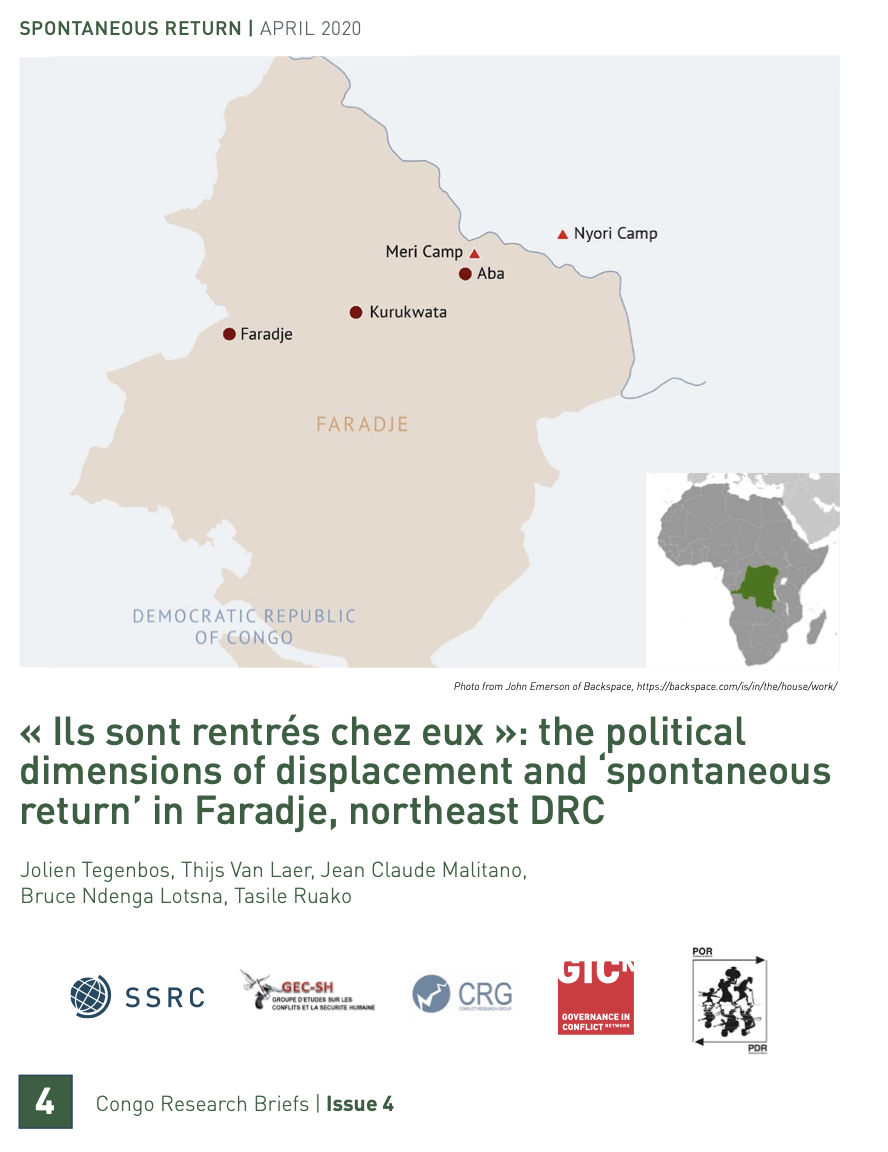The Political Dimensions of Displacement and ‘spontaneous return’ in Faradje, DRC
This is the 4th issue of the Congo research briefs, a joint publication of the Conflict Research Group (CRG) at Ghent University, the Social Science Research Council (SSRC) and its Understanding Violent Conflict programme, the Study Group on Conflicts and Human Security (GEC-SH) at the University of Kivu Research Center (CERUKI), the University of Kinshasa (UNIKIN) and the Governance-in-Conflict Network (GiC). These provide concise and timely summaries of ongoing research on the Congo that is being undertaken by CRG, SSRC, GEC-SH, UNIKIN, GiC, and their partners.
Scholars have only recently started to address repatriation and population return as an inherently political process. Influenced by growing criticism on socio-economic and aid-centric approaches, researchers have contributed to mostly top-down but also increasingly bottom-up analyses of ‘the politics of return’ (Tegenbos & Vlassenroot 2018: 19-21). To this day, we continue to have little understanding of the political impacts of population return in contexts of conflict and displacement, both from the perspective of countries of origin and (former) exile. This paper aims to contribute to this emerging debate on the political dimensions of return by focusing on the sudden ‘spontaneous’ return of 11,6001 Congolese refugees who were forced back from exile in South Sudan to their home areas in Faradje, in northeast DRC.
Many thanks to professor Dr. Kristof Titeca and Dr. Naomi Pendle for their elaborate comments on the paper. This research brief is one of the outputs of the research project “Returning to Stability,” funded by NWO-WOTRO Science for Global Development. In this respect, the authors owe special thanks to the researchers and administrative staff of the organizations and research groups that provided crucial analytical input, logistical support, and orientation throughout the research process: Actions Pour la Promotion Rurale (APRu), International Refugee Rights Initiative (IRRI), Conflict Research Group (CRG), and Groupe d’Etudes sur les Conflits et la Sécurité Humaine (GEC-SH). Final credits to Sara Weschler for terrific language editing.
This work was supported by the Partnership for Conflict, Crime & Security Research, a Global Challenges Research Fund collaboration of the Economic and Social Research Council; and the Arts and Humanities Research Council. [AH/P005454/1]




